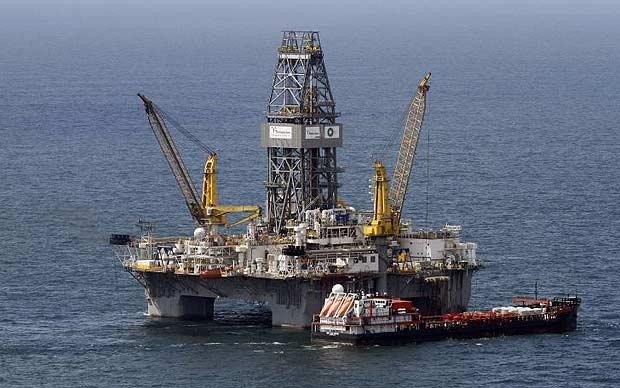The country's oil production is likely to face some threats if measures are not put in place to review some laws guiding the industry, the Public Interest and Accountability Committee (PIAC) has revealed in an assessment report on 10 years petroleum revenue management in Ghana.
This could impact on both local and international activities.
Some of the concerns that could cause the industry includes the growing discussion of energy transition and the impact of the African Continental Free Trade Agreement (AfCFTA) on local content legislation, a situation that has already begun affecting revenue generation from the sector.
This the report highlighted its review in order to cater for the AfCFTA.
Speaking at the launch of the report, Chairman of PIAC, Professor Kwame Adom Frimpong called on stakeholders to intervene as soon as possible with some reviews to both policies and regulations in the petroleum upstream sector.
“We shouldn’t forget the African Continental Free Trade Agreement is in existence and that the local content regulations must be re-looked at as soon as possible. Also the recent conversations on the energy transition which has begun impacting on revenue inflows from the sector must also be taken into consideration because production will be heavily affected.”
Responding to some of the recommendations, a Deputy Minister of Energy, Andrew Agyaper Mercer, admitted that although there may be challenges, work has begun to correct most of the concerns raised.
“Indeed it’s a good observation, but some of these calls are coming a bit too late because we have done some reviews to some of the regulations and more are ongoing. So we can accommodate some other concerns” he said.
The report also revealed that Ghana earned about $6.55 billion from oil and gas production by the end of 2020, equivalent to 9.97% of Gross Domestic Product.
Out of this amount, the Annual Budget Funding Amount (ABFA) has been allocated the highest amount of $2.6 billion (40%) over the period.
This is followed by the Ghana National Petroleum Cooperation (GNPC) which has received $2.0 billion (30%); the Ghana Stabilisation Fund (GSF) receiving an amount of $1.39 billion (21%) of total revenues; whereas the Ghana Heritage Fund (GHF) has received $586 million (9%) of the total allocation.
Latest Stories
-
Queenmother calls on President-elect Mahama to appoint more women in his government
30 minutes -
Atletico Madrid beat Barcelona to go top of La Liga
48 minutes -
Usyk breaks Fury’s heart with points win in rematch
50 minutes -
Ghana-Russia Centre to run Russian language courses in Ghana
6 hours -
The Hidden Costs of Hunger: How food insecurity undermines mental and physical health in the U.S.
7 hours -
18plus4NDC marks 3rd anniversary with victory celebration in Accra
9 hours -
CREMA workshop highlights collaborative efforts to sustain Akata Lagoon
10 hours -
2024/25 Ghana League: Heart of Lions remain top with win over Basake Holy Stars
11 hours -
Black Queens: Nora Hauptle shares cryptic WAFCON preparation message amid future uncertainty
11 hours -
Re-declaration of parliamentary results affront to our democracy – Joyce Bawah
11 hours -
GPL 2024/25: Vision FC score late to deny Young Apostles third home win
11 hours -
Enhancing community initiatives for coastal resilience: Insights from Keta Lagoon Complex Ramsar Site Workshop
11 hours -
Family Health University College earns a Presidential Charter
12 hours -
GPL 2024/25: Bibiani GoldStars beat Nsoatreman to keep title race alive
12 hours -
GPL 2024/25 Bechem United keep title hopes alive with narrow win over FC Samartex
12 hours

